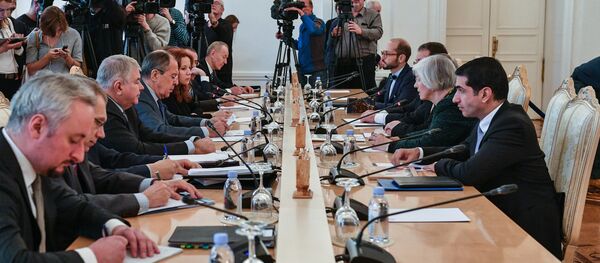“From day one we were firmly against the imposition of sanctions that we thought counterproductive and we are of the opinion that neither side benefits from them. We feel justified that more and more members of the EU are supporting this argument now and we hope that very soon we will manage to shift the philosophy among our colleagues towards more constructive approaches, Kasoulides said.
The ambassador highlighted that while the economic situation in Cyprus had been worsened by 2013 economic crisis, the anti-Russian sanctions, imposed due to Moscow's alleged involvement in the Ukrainian conflict, became a significant blow to it, adding that Cyprus was hurt more than other EU states.
"The Cyprus economy has been hit the hardest, among its EU counterparts, as a result of the sanctions against Russia and the subsequent counter-measures that Russia implemented as a response. Russia was one of our main destinations for agricultural and other products and our producers are struggling, reduced in some occasions to the destruction of their crops," Kasoulides said.
Kasoulides added that Cyprus supported the full implementation of the Minsk Agreements to end the Ukrainian crisis.
Cyprus supports involvement of the Russian companies in its energy market and believes that it will be beneficial for all countries in the Mediterranean region, Cyprus Ambassador to Russia George Kasoulides told Sputnik.
“As far as the energy sector is concerned … we are more than eager to have Russian involvement in those activities and we encourage Russian companies to compete for a fair share of the Cypriot market We also believe that Russian involvement will be beneficial for all countries in our region,” Kasoulides said.
Since 2014, relations between Russia, the United States and the European Union deteriorated amid the crisis in Ukraine, with the West introducing several rounds of anti-Russia sanctions, easing of which was partly linked to the fulfillment of the Minsk agreements. Cyprus has repeatedly called for sanctions cancellation, and even approved a relevant resolution in early July 2016.




